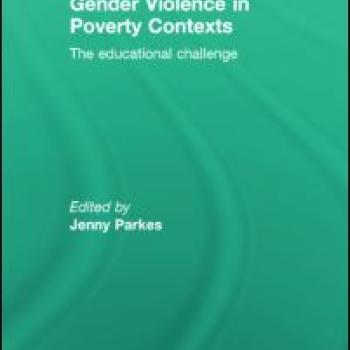Publication Information

The majority of research on children and violence in the home has originated in the Global North, within a psychological framework which highlights the adverse consequences of violence for individual children’s physical, cognitive and emotional development. Few studies have explored children’s own perspectives, experiences and responses, as actors within their own ‘social worlds’. Not all children exposed to violence develop psychological difficulties, but rather generate their own meanings and responses to violence and so manage, or indeed succeed, in the face of adversity.
This chapter draws on qualitative longitudinal research in Vietnam to explore children’s responses to violence in the home. In Vietnam, domestic violence is recognised in law and policy as an infringement of human rights, a public health concern and an obstacle to economic growth and poverty alleviation. However, policies and programmes designed to address domestic violence rarely consider children. Here, we examine how inequalities and hierarchies, both within and outside the home, shape how children learn about and experience multiple forms of violence in the home. We explore the varying tactics employed by boys and girls to negotiate violence, and the influence of violence on children’s subjectivities, social relationships and schooling. We conclude by reflecting on appropriate policy responses to prevent and mitigate the effects of family violence.
Referencechapter in: Gender Violence in Poverty Contexts: The Educational Challenge, edited by Jenny Parkes, London: Routledge,2015, 216 pages

The majority of research on children and violence in the home has originated in the Global North, within a psychological framework which highlights the adverse consequences of violence for individual children’s physical, cognitive and emotional development. Few studies have explored children’s own perspectives, experiences and responses, as actors within their own ‘social worlds’. Not all children exposed to violence develop psychological difficulties, but rather generate their own meanings and responses to violence and so manage, or indeed succeed, in the face of adversity.
This chapter draws on qualitative longitudinal research in Vietnam to explore children’s responses to violence in the home. In Vietnam, domestic violence is recognised in law and policy as an infringement of human rights, a public health concern and an obstacle to economic growth and poverty alleviation. However, policies and programmes designed to address domestic violence rarely consider children. Here, we examine how inequalities and hierarchies, both within and outside the home, shape how children learn about and experience multiple forms of violence in the home. We explore the varying tactics employed by boys and girls to negotiate violence, and the influence of violence on children’s subjectivities, social relationships and schooling. We conclude by reflecting on appropriate policy responses to prevent and mitigate the effects of family violence.
Referencechapter in: Gender Violence in Poverty Contexts: The Educational Challenge, edited by Jenny Parkes, London: Routledge,2015, 216 pages

